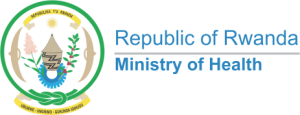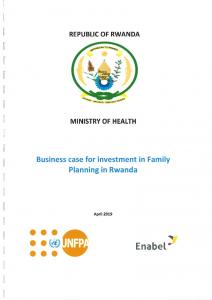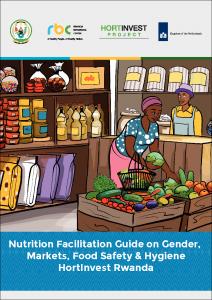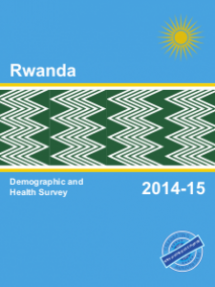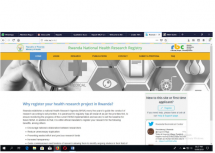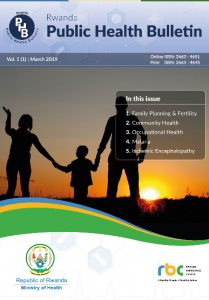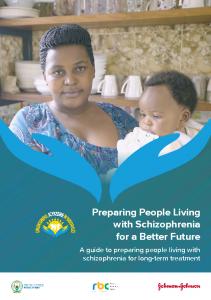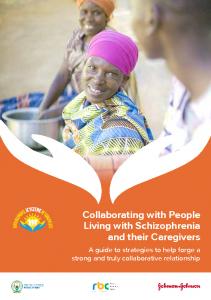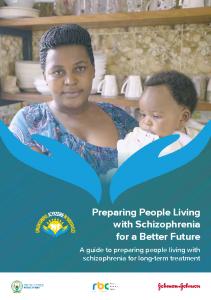HCP Educational Schizophrenia Video Booklet: Collaborating with People Living with Schizophrenia and their Caregivers
Year of Publication: 2021
This booklet accompanies one of a series of four videos featuring a senior Rwandan psychiatrist. The videos were created to support healthcare professionals (HCPs) to ensure that they can confidently support patients with schizophrenia to achieve the best outcomes.
This video covers the topic of collaborating with people living with schizophrenia and their caregivers.
Each of the four video modules is described below.
Module 1: Treating Schizophrenia: A summation of clinical practice guidelines around diagnosis, initial evaluation, and treatment
Module 2: FGAs and SGAs: What You Need to Know: Serves as a refresher on Second Generation Anti-psychotics (SGAs), compares FGAs to SGAs, emphasizes the benefits of different choices available
Module 3: Collaborating With Patients: A tutorial on communicating, active listening, and goal setting with patients to optimize treatment
Module 4: Preparing for a Better Future: A guide to help HCPs improve long-term outcomes that focuses on relapse prevention and adherence to treatment
Distribution will be to psychiatrists and psychiatric nurses in the (12) national and provincial hospitals in the first phase and more broadly in the longer-term.
The script for this video can be found here.
This booklet accompanies one of a series of four videos featuring a senior Rwandan psychiatrist. The videos were created to support healthcare professionals (HCPs) to ensure that they can confidently support patients with schizophrenia to achieve the best outcomes.
This video covers the topic of collaborating with people living with schizophrenia and their caregivers.
Each of the four video modules is described below.
Module 1: Treating Schizophrenia: A summation of clinical practice guidelines around diagnosis, initial evaluation, and treatment
Module 2: FGAs and SGAs: What You Need to Know: Serves as a refresher on Second Generation Anti-psychotics (SGAs), compares FGAs to SGAs, emphasizes the benefits of different choices available
Module 3: Collaborating With Patients: A tutorial on communicating, active listening, and goal setting with patients to optimize treatment
Module 4: Preparing for a Better Future: A guide to help HCPs improve long-term outcomes that focuses on relapse prevention and adherence to treatment
Distribution will be to psychiatrists and psychiatric nurses in the (12) national and provincial hospitals in the first phase and more broadly in the longer-term.
The script for this video can be found here.

